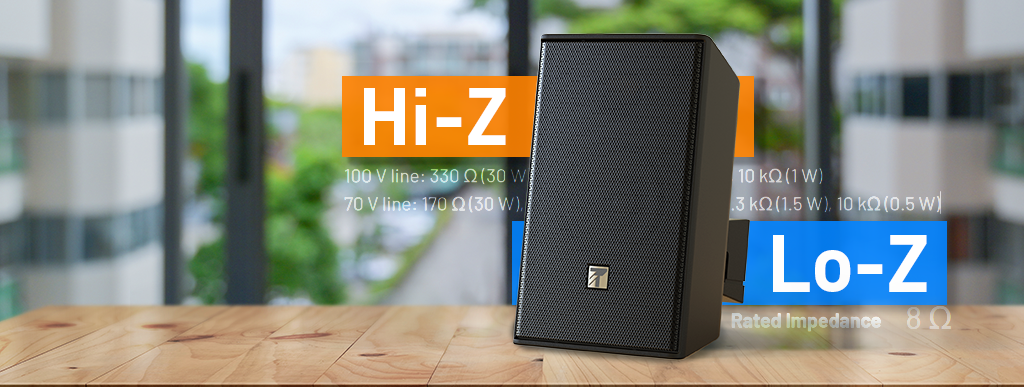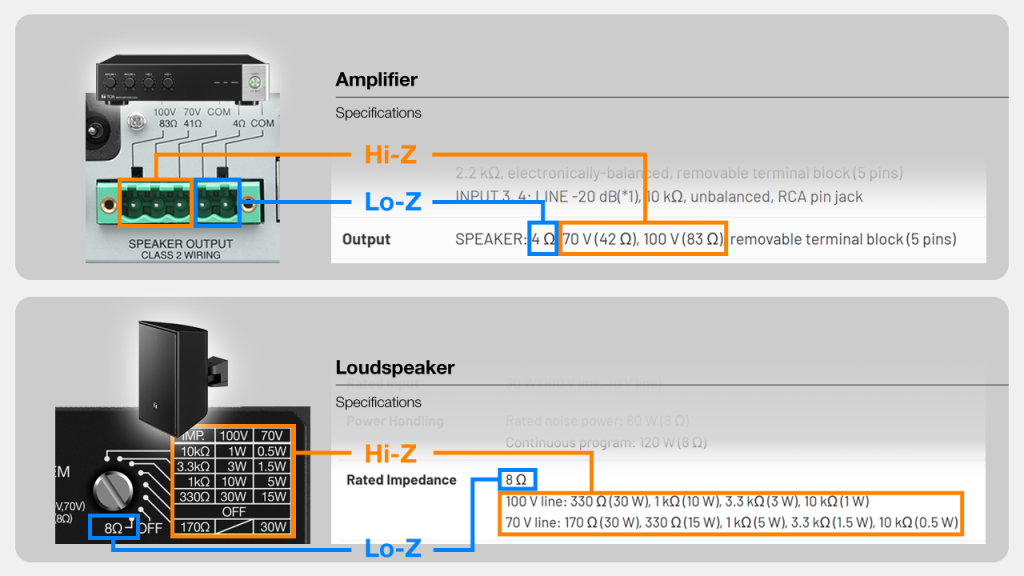High Impedance vs Low Impedance
Sound Talks
High Impedance vs Low Impedance

Have you ever been concerned about the impedance of your loudspeakers or amplifiers?
There are two types of loudspeaker impedance: high impedance (Hi-Z) and low impedance (Lo-Z).
Impedance is important for using speakers and amplifiers safely.
What are High Impedance and Low Impedance?
High Impedance (Hi-Z)
- Characteristics:
- High impedance (hundreds of Ω to several kΩ) reduces transmission loss, ideal for long-distance transmission.
- Can drive multiple loudspeakers, suitable for large facilities and sound systems.
- Easy to add or change loudspeakers.
- Applications:
- Commercial facilities (Shopping malls, hotels)
- Transportation hubs (Airports, Train stations)
- Educational facilities (Schools, Universities)
- Notes:
- Sound quality may be lower than low impedance systems.
- Requires a matching transformer. (Except when built into the loudspeaker or amplifier)
Low Impedance (Lo-Z)
- Characteristics:
- Low impedance (several Ω to tens of Ω), delivering good sound quality.
- Best for short distances between amplifier and loudspeakers.
- Common in general audio and PA systems.
- Applications:
- Home audio, studio monitors, live sound, small stores
- Notes:
- Not suitable for long-distance transmission.
- Limited number of loudspeakers can be driven by one amplifier.
Which to Choose
- For large-scale or long-distance systems: High Impedance
- For high-quality sound or small systems: Low Impedance
How to Check the Impedance of Amplifiers and Loudspeakers
When you want to check or switch the impedance, please check the terminals on your speakers and amplifier. It is also written in their respective datasheets.

What will happen if you don't connect it properly?
If the impedance of the loudspeaker and amplifier does not match, excessive load may be applied to loudspeakers and amplifiers, which may cause it to break down or degrade the sound quality. Please make sure to check carefully and use it correctly and safely!
21. Feb. 2025 / Sound Basics
